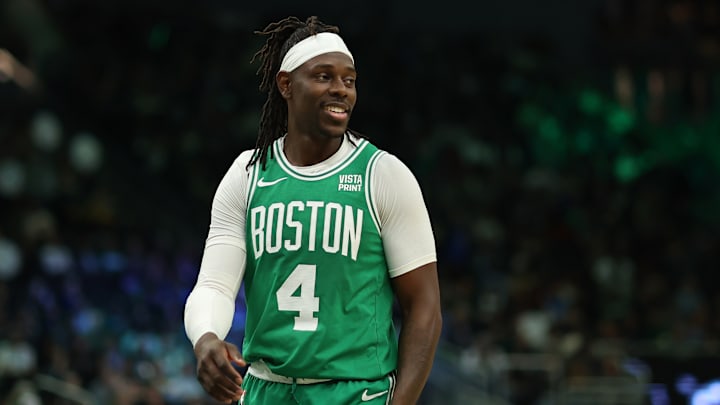The Portland Trail Blazers traded for Jrue Holiday this summer, taking on the $104 million remaining in his contract as a result. They'll soon learn what the Boston Celtics already knew: Holiday is rapidly declining at 35 years old.
Last season in Boston, Holiday averaged 11.1 points and 3.9 assists, both of which were the lowest since his 2009-10 rookie season with the Philadelphia 76ers. He is still impactful as a two-way guard, but Holiday is no longer the top-tier perimeter defender he once was.
Jrue Holiday's decline makes Portland's trade more puzzling
Credit to Brad Stevens and the Celtics as they managed to buy low and sell high on Holiday, acquiring him as the missing piece to help them win a championship, and then finding a way to offload him for an expiring Anfernee Simons to duck the second apron when his production declined. But unfortunately, both deals came at the Blazers' expense.
Robert Williams III was a key piece in the initial Holiday trade, but he has only played 26 games in his first two seasons with the Blazers. This time around, Portland is trading a 26-year-old Simons just entering his prime for Holiday, who doesn't align with their rebuilding timeline.
There are still benefits to this deal for Portland. Holiday will help make them more competitive in the short term while also aiding the development of their young core with his valuable mentorship. But is that really worth $104 million in the scheme of things for Portland's long-term outlook?
For one, they already had an overpaid veteran on their roster in Jerami Grant. That myopic trade for Holiday unnecessarily caps Portland's rebuilding ceiling. Having two overpaid veterans makes it that much harder to upgrade their roster while also retaining their young core, despite being projected to have significant cap space next summer.
Additionally, anything Holiday provides in terms of being a veteran guard to help Portland's up-and-coming backcourt is diminished with Damian Lillard's return, as the purposes they serve on this roster are redundant.
It's understandable that general manager Joe Cronin wants the Blazers to win now. They have endured a four-year playoff drought, their young core showed signs of improvement towards the end of last season, and, most importantly, Cronin's job could be on the line with Tom Dundon set to take over as owner in 2026. He needs to make a strong case for Dundon not wanting to clean house, but Holiday isn't going to be that deciding factor at this stage in his career. The upgrade from Simons to Holiday isn't significant enough to drastically alter their standing in the landscape of the competitive Western Conference.
Portland isn't much better off in the short term and is worse off in the long run, which should have been the priority with their rebuilding timeline. Boston already knew that Holiday's contract could quickly turn into a negative asset with his age and declining play, especially with how strapped teams are financially under the new CBA. You'd think Portland would be more aware of this with how their situation with Grant has played out, but now they have two expensive, declining players to worry about while navigating this complex roster.
